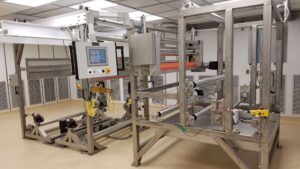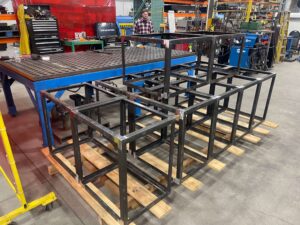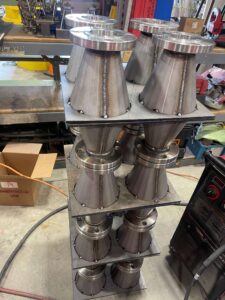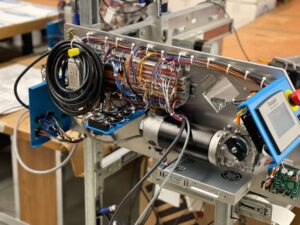Training Services

Training services play a crucial role when implementing new automation equipment, offering several key advantages for both the workforce and the overall success of the automation integration:
esting and validation are essential steps in the implementation of new automation equipment. They ensure reliability, optimize performance, verify safety, and mitigate risks, ultimately contributing to a smooth and successful integration of the technology into the existing operational environment.
- Operational Competence: Training services ensure that operators and maintenance personnel acquire the necessary skills and knowledge to operate and maintain the new automation equipment effectively. This leads to increased operational competence, reducing the likelihood of errors and enhancing overall efficiency.
- Maximized Equipment Utilization: Well-trained personnel can fully leverage the capabilities of the automation equipment. Training services provide insights into the optimal use of features, functions, and settings, maximizing equipment utilization and contributing to improved productivity.
- Reduced Downtime: Properly trained staff are better equipped to identify and address issues promptly, minimizing downtime. Training services cover troubleshooting procedures, enabling personnel to quickly diagnose and resolve issues, reducing the impact of equipment malfunctions on production timelines.
- Safety Compliance: Training services include instruction on safety protocols and best practices related to the new automation equipment. This ensures that personnel are aware of potential hazards, understand safety features, and follow industry regulations, contributing to a safer working environment.
- Adaptability to Change: Automation implementations often introduce changes to workflow and processes. Training services help employees adapt to these changes by providing a clear understanding of how the new equipment integrates into existing operations. This adaptability is crucial for a smooth transition and acceptance of the new technology.
- Efficient Maintenance Practices: Knowledgeable maintenance staff are essential for the ongoing upkeep of automation equipment. Training services cover preventive maintenance routines, calibration procedures, and identification of potential issues. This leads to more efficient maintenance practices, prolonging the equipment’s lifespan and reducing the risk of breakdowns.
- Improved Decision-Making: Training services empower personnel with a deeper understanding of the automation system, enabling them to make informed decisions. Whether it’s adjusting parameters, interpreting performance data, or optimizing processes, well-trained staff contribute to smarter decision-making in day-to-day operations.
- Cost Savings: Investing in training services upfront can result in long-term cost savings. Well-trained personnel are less likely to cause equipment damage due to operator errors, and they can perform routine maintenance tasks more effectively, reducing the need for costly repairs or replacements.
- Enhanced Employee Satisfaction: Training services demonstrate a commitment to employee development and well-being. Well-trained staff are more confident and satisfied in their roles, leading to higher job satisfaction and potentially reducing turnover rates.
In summary, training services are integral to the successful implementation of new automation equipment. They empower personnel with the skills and knowledge needed for efficient operation, maintenance, and adaptation to changes, ultimately contributing to a safer, more productive, and cost-effective work environment.
Project Gallery

Discuss Your Project with Our Team Today
Contact our automation and controls experts to learn how we can help improve and automate your manufacturing processes.




